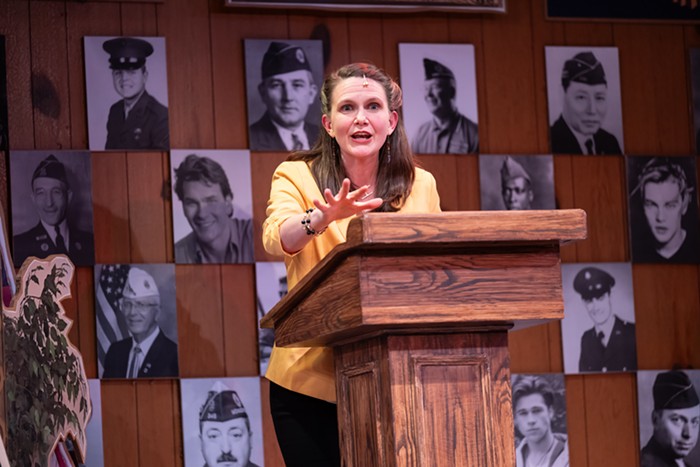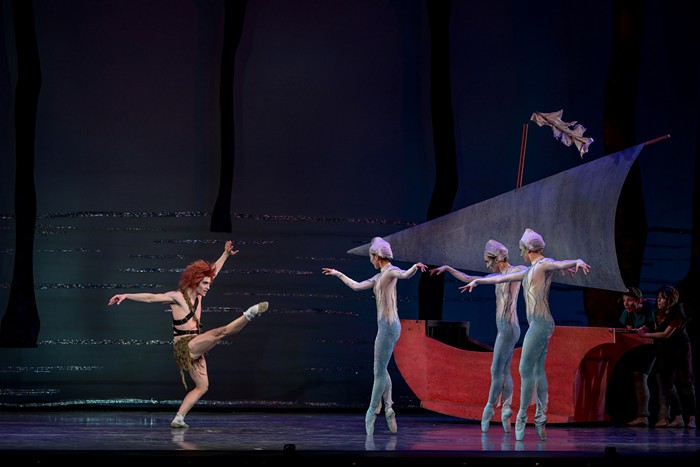Good art is often born of darkness. Think of Mozart, Pollack, Plath. In the right climate, the tedium of melancholy and opposition inspire a desperate need to escape through some sort of expression. Daniela Fischerova's The Hour Between Dog and Wolf was written under such conditions--Prague circa 1979, when Czechoslovakia was submerged in the gloomy oppression of totalitarian rule. As the Communists cracked down on any deviant gesture, Prague, a longtime haven for artists, developed a covert community with its own language for subverting the authorities. In constant fear of exile or prison, the counterculture found refuge in expression through metaphor, simile and entendre.
Hence The Hour Between Dog and Wolf, a product and critique of the former Soviet city, is anything but literal. It tells the disjointed and uncertain history of Francois Villon, a 15th century Parisian poet and balladeer who also happened to be a genius, an atheist and too free-spirited for the authorities. Villon, a scapegoat for the police and a target for the church, is on trial for stabbing a priest. More a poet and lover than criminal, Villon's trial fades in and out of focus against his music, which mesmerizes his friends and infuriates his enemies. The story of Villon's persecution was a clear message to young Prague, who at the time was suffering the censorship of their own folk singer, Vladimir Misik. In Lewis and Clark's production, actor Jonas Lerman, who has a striking aptitude for the art of the ballad, composes Villon's songs.
Set on an imposing stage of wooden arches and balconies that reminisce of church doorways and gallows, the action of Dog and Wolf floats somewhere between history, idea and message. Perhaps because the Czech play had to pass the censors (though it failed) neither characters nor scenarios are followed to a conclusion; rather the play constantly introduces a notion and then quickly buries it, riddle-like, only to draw it out again later. Lewis and Clark's production is held together by layers of ensemble scenes led by the enigmatic musicality of Lerman, who is the most naturally cast as the poet-rouge. ANNA SIMON


















